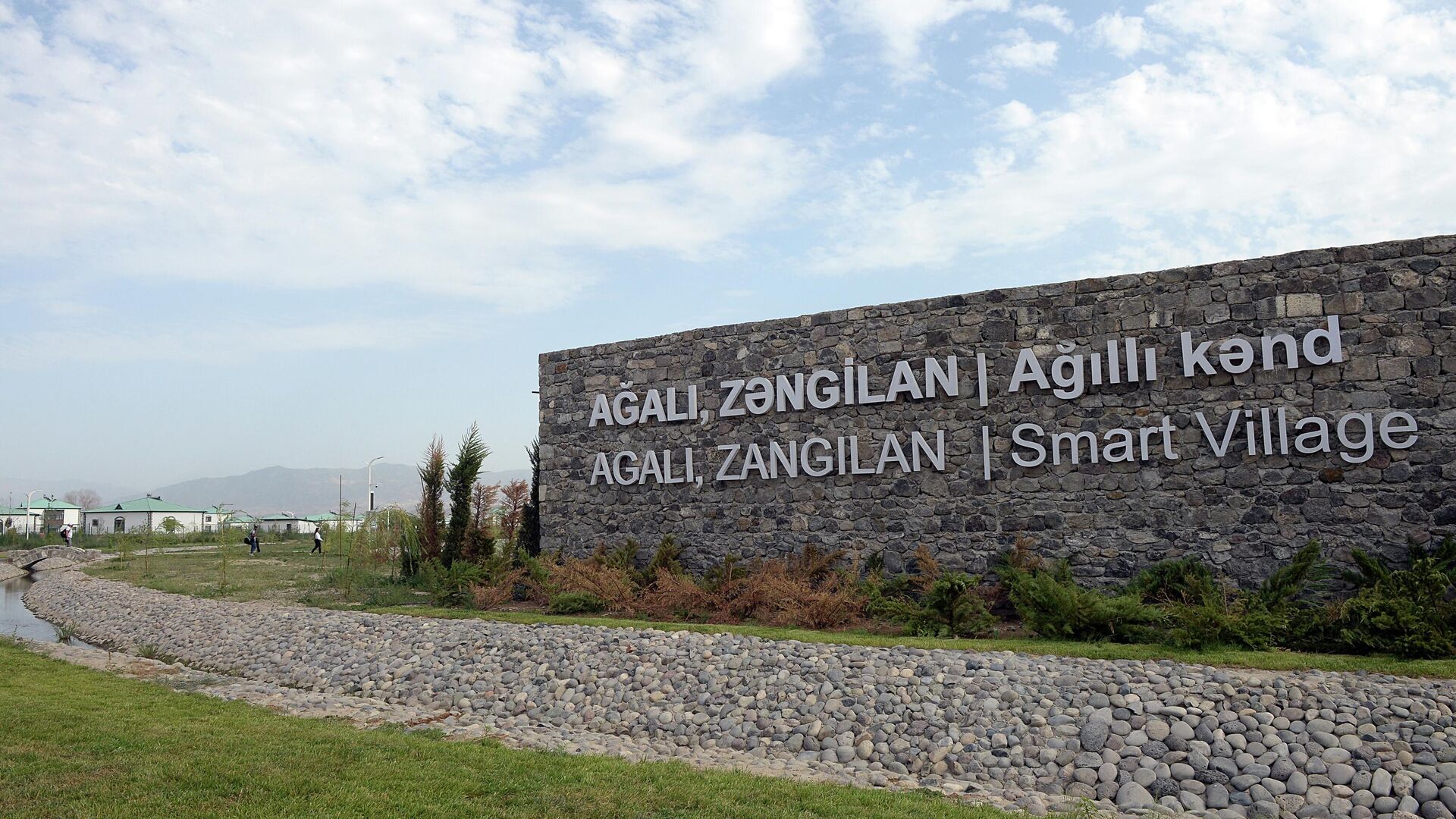On Tuesday, the Azerbaijani government launched the third phase of the return of former internally displaced people (IDP) to the liberated Zangilan region.
In total, 20 families comprising 94 individuals will be resettled in the village of Aghali, with 10 families having already departed and another 10 scheduled to be resettled on March 3, 2023.
According to Fuad Huseynov, the Deputy Chairman of the State Committee for Refugees and IDPs, the majority of the resettled former IDPs are those who have been living in challenging conditions. He further stated that these individuals will be offered employment opportunities aligned with their professional qualifications and skills by relevant institutions in Aghali. These employment opportunities will be available in a range of areas, including government institutions, public catering facilities, construction companies, sewing factories, and other enterprises.
According to Huseynov, a total of 86 families, consisting of 420 former IDPs, have been relocated to Aghali as part of the “Great Return” program, which began in 2022. As per the census records, prior to its capture by Armenian forces in the early 1990s, 1,457 people had been listed as residents of the Aghali village, and out of this number, 1,357 are expected to return to their native lands.
After the reconstruction and establishment of all essential infrastructure, Azerbaijan’s President Ilham Aliyev initiated the return of the residents to Aghali in April 2021. The first phase of the project aimed at revitalizing Aghali was inaugurated by President Aliyev in May 2022.
The village of Aghali, located in the liberated Zangilan district of Azerbaijan, has been designed as the first smart village in the area, incorporating advanced technologies and eco-friendly features. The village is comprised of 150 residential buildings, ranging from two to three stories, as well as a kindergarten, school, medical center, and hydroelectric power plant, among other facilities. The development of Aghali is based on five key components: housing, production, social services, smart agriculture, and alternative energy. The smart agriculture concept in Aghali is set to introduce new innovations in Azerbaijan’s agricultural sector.
In addition, several offices have been established in Aghali, including Azerpost, ASAN Service multi-purpose social services center, DOST social support center, and the Center for Development of Small and Medium Enterprises. Furthermore, an agricultural park is currently under construction in the village. The residents of Aghali will be able to access over 100 online services related to social security and employment.
After Azerbaijan regained control of its territories following a 44-day war with Armenia in 2020, the Azerbaijani government approved the “Great Return” program to enable the return of internally displaced persons (IDPs) to their native lands.
Armenia and Azerbaijan had long been at odds over the latter’s Karabakh (Garabagh) region. Following the Soviet Union’s dissolution in 1991, Armenia launched a military campaign against Azerbaijan that lasted until a ceasefire deal in 1994. As a result, Armenia occupied 20 percent of Azerbaijan’s internationally recognized territories. Over 30,000 ethnic Azerbaijanis were killed, and one million were expelled from those lands in a brutal ethnic cleansing campaign carried out by Armenia. In 1993, Zangilan was occupied by Armenian forces, resulting in the forced displacement of 42,700 residents. During the decades of occupation, the district was completely destroyed.
On September 27, 2020, the decades-old conflict between the two countries spiraled after Armenia’s forces deployed in occupied Azerbaijani lands shelled military positions and civilian settlements of Azerbaijan. During counter-attack operations, Azerbaijani forces liberated over 300 settlements, including the cities of Jabrayil, Fuzuli, Zangilan, Gubadli, and Shusha, from a nearly 30-year-long illegal Armenian occupation. The war ended in a tripartite statement signed on November 10, 2020, by Armenia, Azerbaijan, and Russia. Under the statement, Armenia returned the occupied Aghdam, Kalbajar, and Lachin districts to Azerbaijan.







 Armenian sappers commenced on Monday mine-clearance operations in the territories adjacent to the Saint Mary Church in village of Voskepar (Armenia...
Armenian sappers commenced on Monday mine-clearance operations in the territories adjacent to the Saint Mary Church in village of Voskepar (Armenia...
 Iran and Pakistan have signed eight cooperation documents in various fields, and agreed to strengthen ties to fight terrorism in the region.
Iran and Pakistan have signed eight cooperation documents in various fields, and agreed to strengthen ties to fight terrorism in the region.
 President Aliyev emphasized the critical role of the North-South Transport Corridor in fostering transport cooperation between Azerbaijan and Russi...
President Aliyev emphasized the critical role of the North-South Transport Corridor in fostering transport cooperation between Azerbaijan and Russi...



